- Home
- Isaac Hooke
Cradle of War (A Captain's Crucible Book 3) Page 4
Cradle of War (A Captain's Crucible Book 3) Read online
Page 4
“Counterparts on the Marley?” Jonathan said. “I wasn’t aware the Builder ship had a real scientific department.”
“I had a couple of the robots manning the ship repurposed to act in a scientific capacity. It was a matter of installing a few apps.” She smiled sardonically. “Sometimes I wonder why NAVCENT hasn’t replaced us all with robots.”
“To understand why, you only have to look to the first alien war,” Jonathan said.
Connie pursed her lips. “You’re talking about when our robots turned against us?”
Jonathan nodded vigorously. “That right there is the main reason why we’re never going to replace humans entirely.”
“But seventy years is a long time,” Connie said. “Human beings forget, grow complacent. Surely by now we would have begun to experiment with completely automated crews.”
“Oh, we’ve experimented all right,” Jonathan said. “But in the end, some neo-conservative navy admiral always pulls the plug. And rightly so. These days the closest we come to completely automated crews are the Builders, and even those vessels have human babysitters aboard.”
Connie sighed. “All because of something that happened seventy years ago.”
“It almost sounds like you want to be put out of a job,” Jonathan said. “There are other reasons, too, of course. Least of all is human happiness. There are some of us, you know, who need purposeful work to give our lives meaning. And the navy understands that, and is happy to oblige, filling its human quota with our eager ranks.
“And you’re forgetting entirely about cyberwarfare. We wouldn’t even need an alien invasion to lose control of a substantial number of our robots. All it would take it is a coordinated cyber-attack from the Sino-Koreans or other nefarious actors, state or non-state.
“The military keeps a close tab on its machines, monitoring them continually: from production, to delivery, to theater of operations, but even so there are a few high-ranking officials who firmly believe the Sino-Koreans have already embedded latent trojans in the complex code of our AIs. Most would label these higher-ups kooks and conspiracy theorists, but the fear is there. Can you imagine if all Centurions of a certain make, model and software revision served as a secret botnet, ready to respond to whatever orders their Sino-Korean masters should transmit? Or what about a hacked AI at the core of a starship? That could spell ruin, not just for the starship in question, but for the fleet it was attached to.
“So you see now why, despite the many failsafes and security protocols we’ve implemented, for the foreseeable future there will always be a place for humans aboard ships and fighters. We rely upon the machines and AIs, yes, but we cannot rely upon them absolutely.”
Connie regarded him curiously. “Have you ever thought of running for office?”
Jonathan laughed. “Political science was never my forte.”
“I don’t know about that,” Connie said. “Sometimes, you talk exactly like a politician. You would make a good speech writer, at least. Think about it. Something to do when we return home and you retire from the navy.”
If we ever return home, Jonathan wanted to say, but he thought it best to keep his morale-lowering comments to himself.
“I’ll keep it in mind, Lieutenant,” Jonathan said instead. “Thank you for the update.”
With that, he left the cargo bay and began to make his way back to the bridge.
He considered paying a visit to his chief weapons engineer, Lieutenant Harv Boroker, for an in-person update on the captured Raakarr fighter in their possession, but he already knew Harv’s team had made no progress in reverse engineering the alien tech. The craft had been in Harv’s hands for the past six months: his team had cracked open the hull and discovered various components embedded within an organic jelly. When those components were breached, a similar substance was found inside. Harv guessed the gel was not inherent to the components, but rather some defensive measure meant to prevent the tech from falling into enemy hands.
Harv had finally detected energy readings from one of the intact components when the Callaway had encountered an actual Raakarr vessel, but the readings hadn’t helped the Lieutenant discern the component’s function.
Paying a visit to Harv would do little to further his progress. When his team made a discovery, Harv would contact the captain immediately rather than waiting to announce it as part of the morning update, Jonathan knew.
The Aurelia and Dagger had similar dismantled fighters aboard, and their respective weapons engineering teams had made just as little progress.
The failure of those crews to make any headway, combined with Connie’s general lack of useful progress, was disheartening to say the least. Jonathan supposed he was hoping for a miracle in a place where no miracles would come. Maybe he was expecting too much. The understanding of the underlying science and physics involved was potentially lacking, and without that understanding, his teams simply couldn’t reproduce the tech, let alone control it.
And yet, what was the point of capturing alien technology if his fleet couldn’t put it to use? Especially if seizing some of that tech had actually turned an ancient alien race against them? The Elder were coming, and they definitely seemed pissed.
Jonathan sighed. He hoped Miko could conjure up some viable strategies. The captain had a few ideas himself, but as to whether any of them would actually work, he had no clue. They knew so very little about the enemy. That Möbius strip vessel might be impervious to all of their weapons.
We’ll fight the good fight. And if we die, we’ll return to the void, to the state we existed in before we were born.
If consciousness was truly an artificial construct of the living brain, which itself was an extension of the universe, then he would simply cease, none the wiser to the life he once held. He would still exist as a part of the universe, but he would not be aware of that existence, just as a rock isn’t self-aware.
It was a somehow peaceful thought, the notion of utter oblivion. Almost preferable to living on in some bodiless state where the rules of the game were changed entirely, where concepts such as ego, personality and senses faded away, leaving behind only raw, emotionless being.
If the end should come, his only regret was that the crew—and the crews of those captains who served beneath him—would have to fall, too.
six
The Grimm returned to a higher orbit six hours before the Elder vessel was scheduled to arrive. The Marley, Aurelia and Dagger had joined it, forming Task Unit Two, together flying to the far side of the gas giant, where all four were to hide behind one of the moons.
The Callaway, Salvador and Talon remained behind, forming Task Unit One. Jonathan had the Elder embryo returned from the Marley to the Callaway beforehand, so the Callaway harbored two of the eggs, and the Salvador one. He wanted to give an egg to the Talon, but Valor flat-out refused to allow the Elder offspring aboard the Raakarr ship. If things went sour, the plan was for those three ships—or the survivors, anyway—to slingshot past the gas giant, toward the moon, drawing the enemy with them. As the Elder vessel flew by, the Aurelia and Dagger would emerge from behind the moon and swing past in a classic pincer maneuver.
Of course, there were many things that could go wrong with that plan. The Elder vessel might realize the trap, and give the moon a wide berth. Or it might change course to pass the moon from the opposite side, catching the hidden ships off guard. It might not even pursue at all.
The civilian-crewed Grimm and Marley were to remain in hiding behind the moon during all of that: if the rest of the fleet was lost, the survivors would have to fend for themselves and find a way to survive.
While it might seem he was granting the civilian ships a small mercy by allowing them to opt out of the battle, Jonathan kept the latter vessels in hiding for selfish reasons: he needed the Builder to eventually construct a return Gate, and he required the Harvester for refueling purposes.
As for himself, if he was to die, he much preferred to do it in battle, not mon
ths or years down the line, stranded in some faraway galaxy, trapped aboard a starship, dwindling supplies forcing him and his crew to commit abominations. Jonathan knew the warship captains were like him in that regard, which is why the others hadn’t debated the battle plan very vigorously during the fleet conference. Most of the captains had seemed resigned to their fates, and none of them really hoped to win the coming engagement. Jonathan didn’t blame them. There was some contention over the matter of not firing first, namely from Captain Rail of the Salvador, but in the end she agreed restraint was the best initial course of action.
When the Elder ship grew near, if it didn’t blow up the fleet outright, no doubt its crew would demand the return of the humanoid bodies and environmental suits, and of course the eggs. In anticipation of that demand, Jonathan had Connie dispatch one of the suits to the Dagger before that ship went to hide behind the moon of the gas giant. If the task group somehow managed to emerge from the engagement peacefully, he wanted to ensure humanity still had some Elder tech to study. He knew it was a dangerous game he played, but hopefully the rewards in such a scenario would be worth it.
When the Elder ship was only two hours away, Jonathan gave the order for the Callaway, Salvador, and Talon to begin their slingshot maneuver across the gas giant.
“Helm, advance, half speed,” Jonathan said. “Miko, relay the orders to the task unit.”
The helmsman echoed his orders, as did the tactical officer, who had stayed on for the second shift.
“Is the Elder continuing its pursuit?” Jonathan asked the ops station.
“It is,” Ensign McNamara, the second watch ops officer, said. “Their course and speed are holding steady.”
Jonathan sat back, preparing for the long, tense wait.
An hour later the ensign announced: “The Elder vessel is coming to a full stop.”
Jonathan frowned. “Distance?”
“Two million kilometers.”
Jonathan sensed Robert glancing at him and turned to meet his gaze.
“You think they can fire from that distance?” the commander asked.
“I truly don’t know,” Jonathan said. “We can’t assume anything.”
“If they had the ability, why didn’t they open fire when they first emerged from the Slipstream?” Robert said. “They were two million kilometers from us at that time as well, if you’ll recall.”
“True enough,” Jonathan ceded. “But they may have been debating their course of action at the time. Holding back.” He glanced at a nearby station. “Helm, maintain current speed and direction.”
“Maintaining current speed and direction,” the helmsman answered.
“Captain,” Ensign McNamara said. “I’m reading gamma ray emissions.”
“The Talon is still trying to communicate with them?” Jonathan asked.
“The ray isn’t coming from the defector ship,” McNamara said. “It seems to be sourced from the Elder vessel itself.”
Jonathan felt his brow crumple. “An attack?”
“Negative,” the ensign said. “I don’t think it’s an attack. The emissions match the previous communication-grade pulses sent to the enemy Raakarr fleet. The target is the Talon.”
Jonathan sat back.
“So they’ve finally decided to talk after all,” Robert said.
Jonathan chuckled softly. “We have their eggs. Of course they want to talk. Though I suspect they’re sending over the terms of our surrender. Comm, tap in Barrick. I want to know what the hell the Elder are telling our so-called allies.”
A moment later Barrick’s voice came cover the comm. “Hello Captain. I assume you’re getting in touch because of the transmission we’re receiving?”
“Very good assertion,” Jonathan said.
“All right,” Barrick replied. “A moment... apparently the message is grammatically fragmented, and uses strange mental symbology, some of it so out of place that the translation drifts into the ridiculous. One of the Zarafe science officers has theorized the Elder are using the equivalent of AIs to communicate. Which would make some sense. Language is always changing. The English in use today, for example, is nothing like the English from the twenty-first century. The roots are mostly the same, but the words entirely different. So you can imagine how much the Elder language has changed in the five hundred thousand years since they left our galaxy. Without AIs, I doubt they’d be able to communicate at all.”
Jonathan pursed his lips when Barrick finished. He was about to reply when McNamara spoke up.
“The gamma ray emissions from the Elder vessel just ceased,” the ensign said.
Jonathan nodded. “Barrick. I understand the Raakarr are having trouble translating it. But they must have some idea of what the Elder want.”
“They do. The gist seems to be that the Elder have asked for our unconditional surrender. If we agree to return their offspring, the four humanoids, and their suits, they will let us go on our way.”
Jonathan glanced at Robert and muted his microphone. “Seems very lenient.”
“It does,” Robert agreed.
“That they asked for the return of the suits tells us that the humanoids were serving them after all,” Jonathan said. “Or working for them, anyway. So we can rule out any theories about the humanoids hunting those eggs.”
“That was a weak theory, anyway,” Robert said.
“You think all theories are weak,” Jonathan replied.
Robert smiled slyly. “You taught me not to believe everything I heard.”
“And so I did.” The captain unmuted the remote connection. “What assurances do we have that the Elder won’t open fire the moment we give them what they want?”
“No assurances were specified,” Barrick answered. “Even so, Valor thinks we should agree to everything. He suggests we deposit the requested items in a craft and dispatch them toward the Elder vessel. Meanwhile, we continue moving away. He— hold on.” Barrick paused. “Valor is becoming increasingly agitated. He says you and I are taking too long. He urges you to make your decision soon, and says he will not consult with us again if we continue to delay.”
“You make it sound like he’s doing us a favor by consulting with us,” Jonathan said. “Remind him that he’s part of the fleet only because of my leave. And he’s under my command. Therefore he is required to consult with me before making any sort of response.”
“I will remind him,” Barrick replied.
Jonathan muted the line and glanced at Robert. “What do you think?”
“I’m not sure we have much choice,” the commander said. “Either we do as the Elder ask, or we fight.”
“Do you really think they’re going to let us go, just like that?” the captain pressed. “They’re not angry about what we’ve done?”
The images of war planted by the offspring came unbidden to his thoughts; he saw the Möbius strip in his mind’s eyes, bringing death and destruction to the colonies of Raakarr and human alike.
“Maybe the Elder are as enlightened as you once believed,” Robert argued.
Jonathan frowned. “Maybe. But enlightened doesn’t necessarily mean they won’t ever show wrath.”
“If their offspring are fine,” Robert argued. “I don’t see why they wouldn’t let us go our way.”
“You’re forgetting we harmed their humanoid servants,” Jonathan reminded him. “Those four might have been the favorite pets of the Elder captain. Or perhaps the one that got away desires vengeance for the death of his comrades. Maybe he’ll convince his masters to strike. Or it could be the Elder want to capture us either way, to study us and our tech, and to see how far we’ve advanced since they left our galaxy.”
“Damned if you do, damned if you don’t.” Robert shook his head and sighed. “Still, if we base our response on human ethics alone, giving up the eggs is the right thing to do. We did essentially steal them. How would you feel if an alien craft landed outside your nursery and stole your babies straight from the cribs? I say we l
oad their specimens into a lifepod and eject it toward the Elder, and then quickly accelerate away. After that, we hope to hell they leave us alone.”
seven
Jonathan looked at his tactical officer. “And what are your thoughts, Miko?”
“If we give up their eggs,” Miko said. “We give up the only thing preventing them from firing on us. Like you said, we don’t know the range of their weapon systems. They could fire the moment we release the cargo.”
“Maxwell?” he asked the AI.
“I would recommend a compromise,” Maxwell replied. “Tell them we will give them what they want, but first they must return to the immediate vicinity of the Slipstream. Only then will we dispatch a craft containing their eggs.”
Jonathan tapped his chin.
“So?” Robert asked.
“I’m going to go with Maxwell’s suggestion,” the captain said. “It seems the best option. Assuming the Elder go for it.” He unmuted the line. “Barrick, have the Raakarr tell the Elder we agree in principal, but we will launch the craft only when they’ve returned to the immediate vicinity of the Slipstream. Surely they’ll excuse us for not trusting them entirely.”
“I will inform Valor,” Barrick replied.
“Also,” Jonathan continued. “It seems obvious the Elder altered the properties of the farther Slipstream to allow the other Raakarr to return to Vega 951, otherwise why else would the enemy fleet be traveling toward the wormhole at maximum speed? We need assurances the Elder will keep the Slipstream pointing to Vega 951 so that we too can return to our own space. And also, I want to know why they brought us here in the first place. Since it seems fairly obvious that it was them, or another member of their kind.”
Barrick’s reply came a moment later. “Valor is fine with sending everything you’ve said. The Zarafe are formulating the transmission as we speak.”
A moment later Ensign McNamara announced: “I’m detecting a gamma ray communications burst from the Talon. It’s directed toward the Elder vessel.”

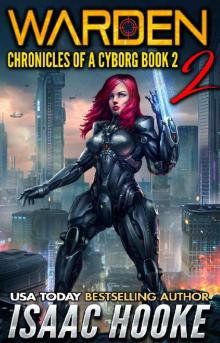 Warden 2
Warden 2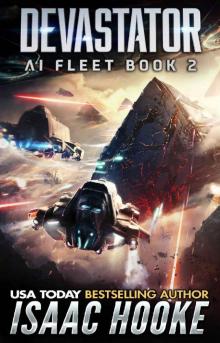 Devastator
Devastator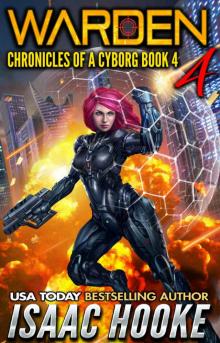 Warden 4
Warden 4 Emperor
Emperor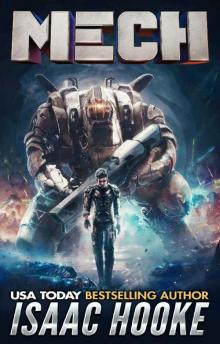 Mech
Mech Conqueror
Conqueror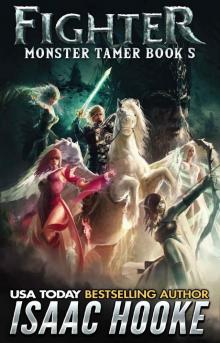 Fighter
Fighter The Forever Gate Ultimate Edition
The Forever Gate Ultimate Edition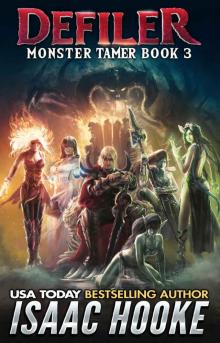 Defiler
Defiler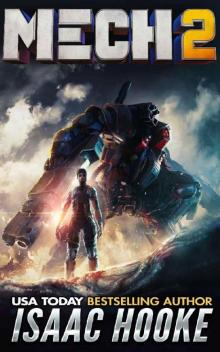 Mech 2
Mech 2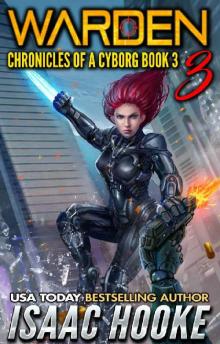 Warden 3
Warden 3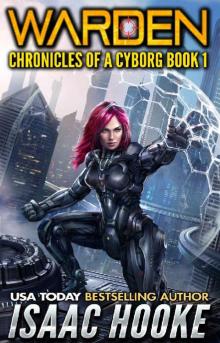 Warden 1
Warden 1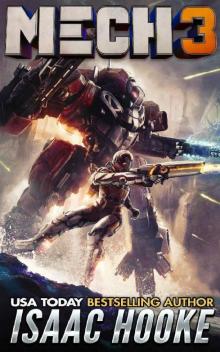 Mech 3
Mech 3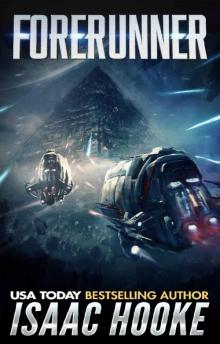 Forerunner
Forerunner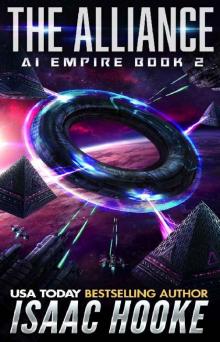 The Alliance (AI Empire Book 2)
The Alliance (AI Empire Book 2)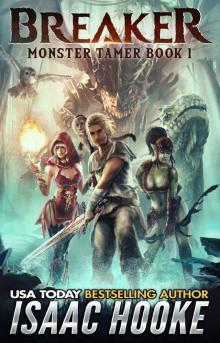 Breaker (Monster Tamer Book 1)
Breaker (Monster Tamer Book 1) Bender of Worlds
Bender of Worlds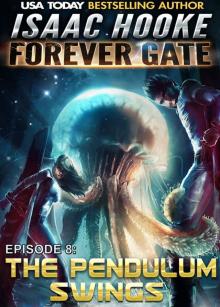 The Pendulum Swings (The Forever Gate Book 8)
The Pendulum Swings (The Forever Gate Book 8)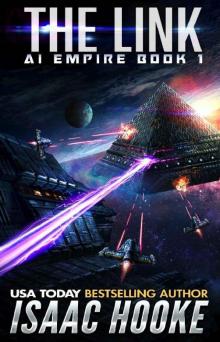 The Link
The Link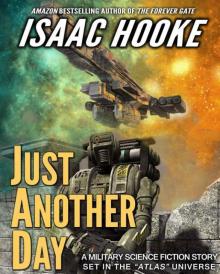 Just Another Day
Just Another Day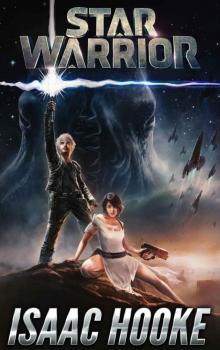 Star Warrior
Star Warrior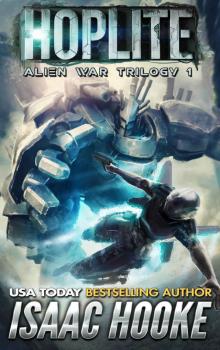 Alien War Trilogy 1: Hoplite
Alien War Trilogy 1: Hoplite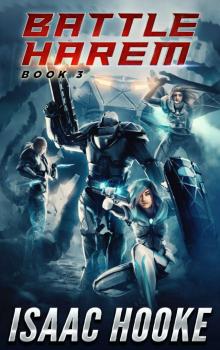 Battle Harem 3
Battle Harem 3 The Ethan Galaal Series: Books 1 - 3
The Ethan Galaal Series: Books 1 - 3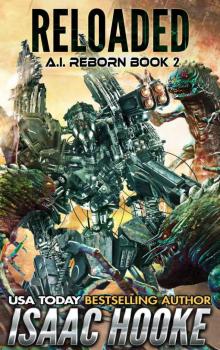 Reloaded
Reloaded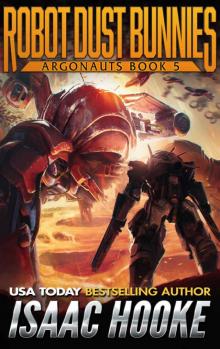 Robot Dust Bunnies (Argonauts Book 5)
Robot Dust Bunnies (Argonauts Book 5) Battle Harem
Battle Harem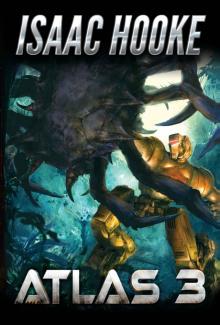 ATLAS 3 (ATLAS Series Book 3)
ATLAS 3 (ATLAS Series Book 3)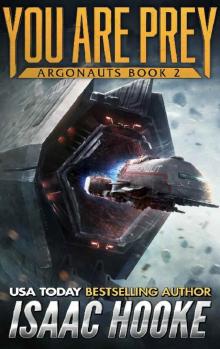 Argonauts 2: You Are Prey
Argonauts 2: You Are Prey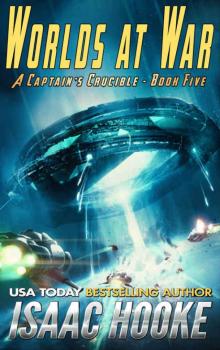 Worlds at War (A Captain's Crucible Book 5)
Worlds at War (A Captain's Crucible Book 5)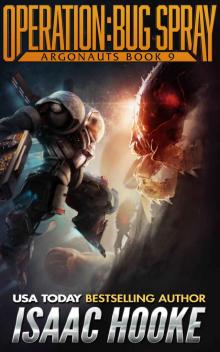 Operation: Bug Spray (Argonauts Book 9)
Operation: Bug Spray (Argonauts Book 9)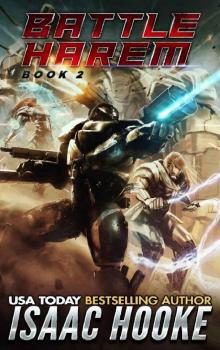 Battle Harem 2
Battle Harem 2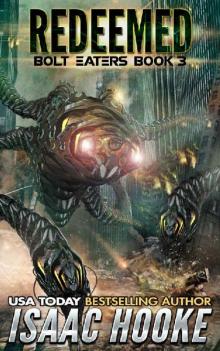 Redeemed (Bolt Eaters Trilogy Book 3)
Redeemed (Bolt Eaters Trilogy Book 3)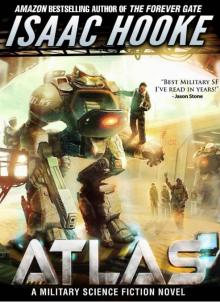 Atlas
Atlas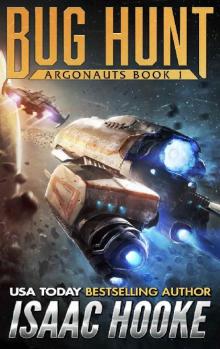 Argonauts 1: Bug Hunt
Argonauts 1: Bug Hunt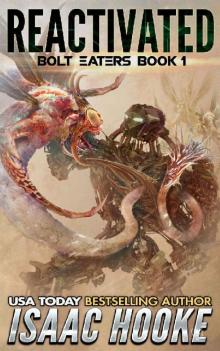 Reactivated (Bolt Eaters Trilogy Book 1)
Reactivated (Bolt Eaters Trilogy Book 1)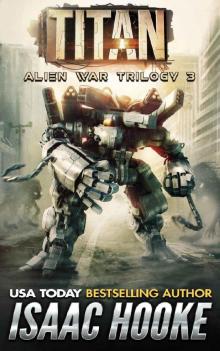 Alien War Trilogy 3: Titan
Alien War Trilogy 3: Titan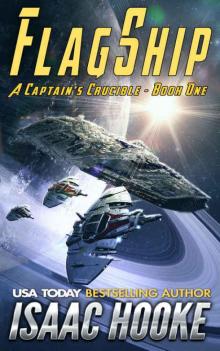 Flagship (A Captain's Crucible #1)
Flagship (A Captain's Crucible #1)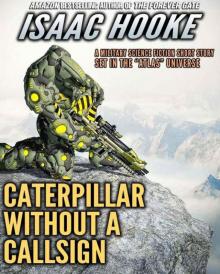 Caterpillar Without A Callsign
Caterpillar Without A Callsign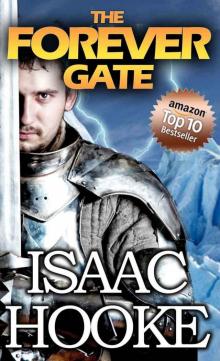 The Forever Gate
The Forever Gate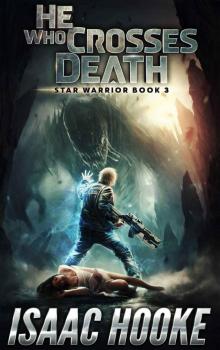 He Who Crosses Death (Star Warrior Quadrilogy Book 3)
He Who Crosses Death (Star Warrior Quadrilogy Book 3)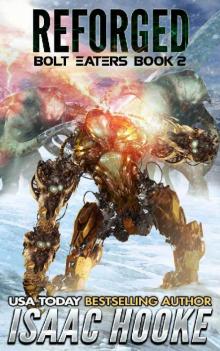 Reforged (Bolt Eaters Trilogy Book 2)
Reforged (Bolt Eaters Trilogy Book 2)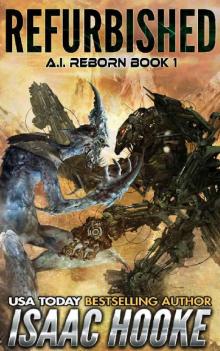 Refurbished
Refurbished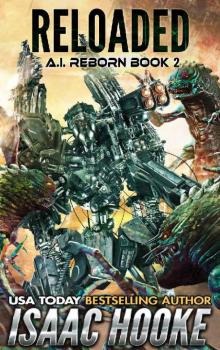 Reloaded (AI Reborn Trilogy Book 2)
Reloaded (AI Reborn Trilogy Book 2)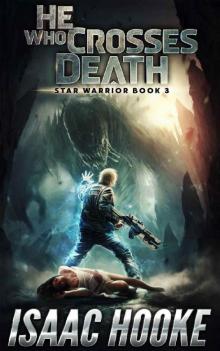 He Who Crosses Death
He Who Crosses Death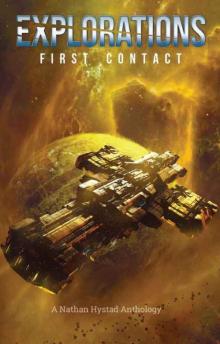 Explorations: First Contact
Explorations: First Contact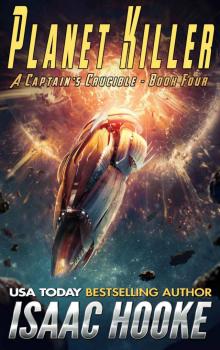 Planet Killer (A Captain's Crucible Book 4)
Planet Killer (A Captain's Crucible Book 4)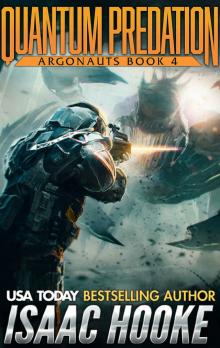 Quantum Predation (Argonauts Book 4)
Quantum Predation (Argonauts Book 4) Clandestine-IsaacHooke-FreeFollowup
Clandestine-IsaacHooke-FreeFollowup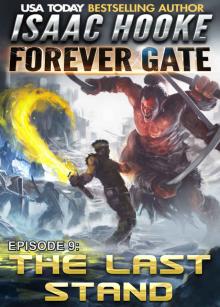 The Last Stand (The Forever Gate Book 9)
The Last Stand (The Forever Gate Book 9)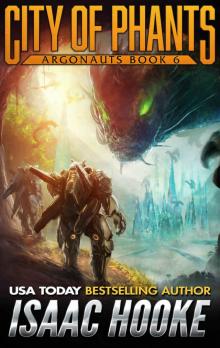 City of Phants (Argonauts Book 6)
City of Phants (Argonauts Book 6)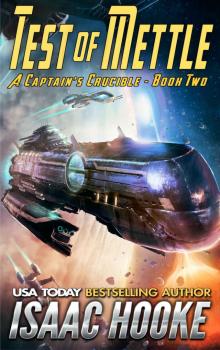 Test of Mettle (A Captain's Crucible Book 2)
Test of Mettle (A Captain's Crucible Book 2)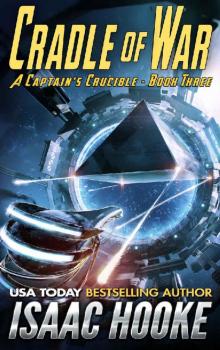 Cradle of War (A Captain's Crucible Book 3)
Cradle of War (A Captain's Crucible Book 3)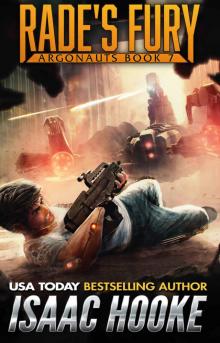 Rade's Fury (Argonauts Book 7)
Rade's Fury (Argonauts Book 7)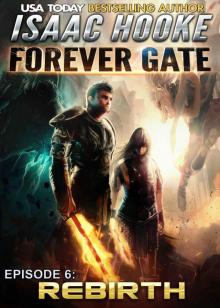 Rebirth (The Forever Gate Book 6)
Rebirth (The Forever Gate Book 6) The Forever Gate Compendium Edition
The Forever Gate Compendium Edition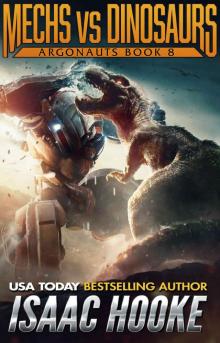 Mechs vs. Dinosaurs (Argonauts Book 8)
Mechs vs. Dinosaurs (Argonauts Book 8)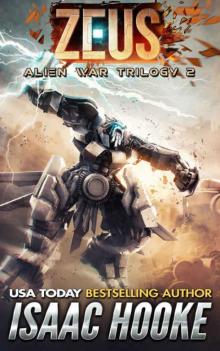 Alien War Trilogy 2: Zeus
Alien War Trilogy 2: Zeus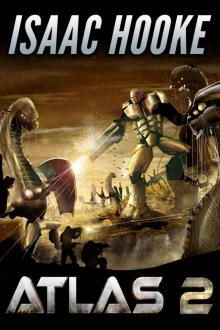 ATLAS 2 (ATLAS Series Book 2)
ATLAS 2 (ATLAS Series Book 2)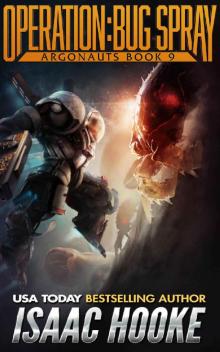 Operation_Bug Spray
Operation_Bug Spray